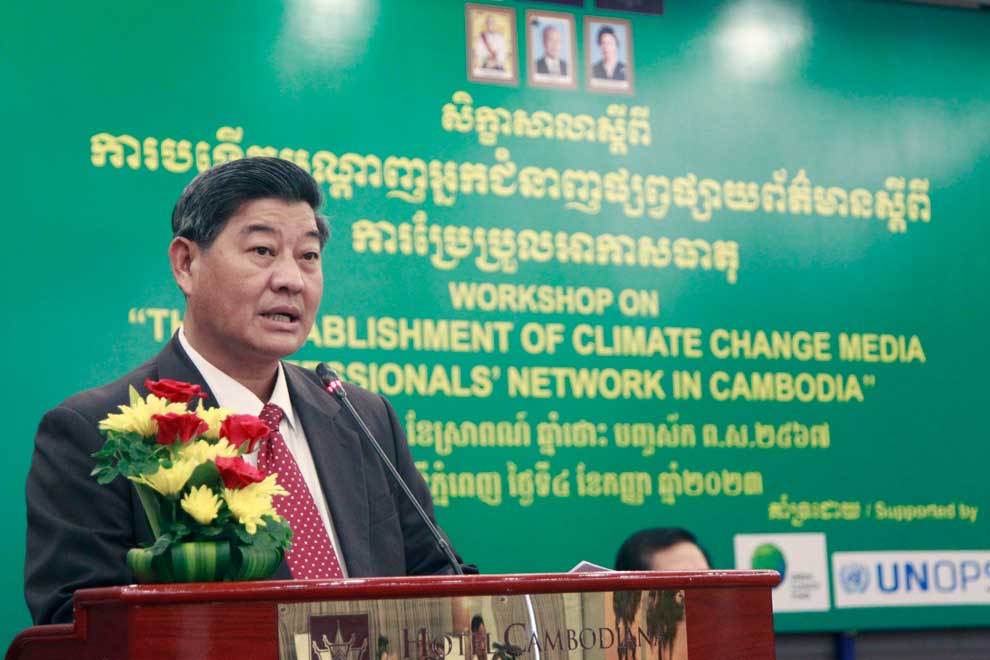
Environment ministry undersecretary of state Pheav Sovuthy speaking at the climate change workshop on September 04. Heng Chivoan
Cambodia is poised to launch its National Adaptation Plan (NAP) in response to the issue of climate change.
A recent study revealed alarming projections, indicating that the effects of climate change could slash the Kingdom’s gross domestic product (GDP) by 2.5 per cent by 2030 and a staggering 9.8 per cent by 2050.
The Ministry of Environment convened a September 4 climate change workshop, designed to give a deeper understanding of the plan to media representatives and journalists, with approximately 50 participants in attendance.
Ministry undersecretary of state Pheav Sovuthy highlighted the growing significance of climate change, both in Cambodia and globally. He warned of the catastrophic consequences climate change could inflict on the planet and its inhabitants.
Sovuthy pointed out that Cambodia, frequently plagued by flooding, droughts and storms, is among the nations most severely affected.
In response to the findings of the new study, he said Cambodia’s primary focus is on bolstering socio-economic resilience to mitigate the adverse impacts of climate change on public health, infrastructure and agricultural production.
“We are ready to establish a robust climate change adaptation framework as the foundation for launching the NAP,” he said.
“However, addressing climate change necessitates the involvement and support of all our partners,” he added.
Since 2000, the government has undertaken the development of three key documents: the 2017 NAP, the NAP Financing Framework and Implementation Plan for 2017, and the 2018 NAP Communication Strategy.
Saing Kimleng, project coordinator for National Planning for Climate Change Adaptation, outlined the NAP’s seven-point strategy, which aims to address the issue comprehensively and sustainably.
“The seven-point strategy will complement existing government efforts in communication and foster learning among the communities most affected by climate change,” he said.
Keo Sokha, Khmer language editor at the Women’s Media Centre of Cambodia who also attended the event, underscored the critical role of the NAP in empowering people to combat climate change and mitigate its effects, in the present as well as in the future.
“Raising awareness among journalists about climate change is of paramount importance. Improved awareness will lead to more effective news coverage,” he said.










